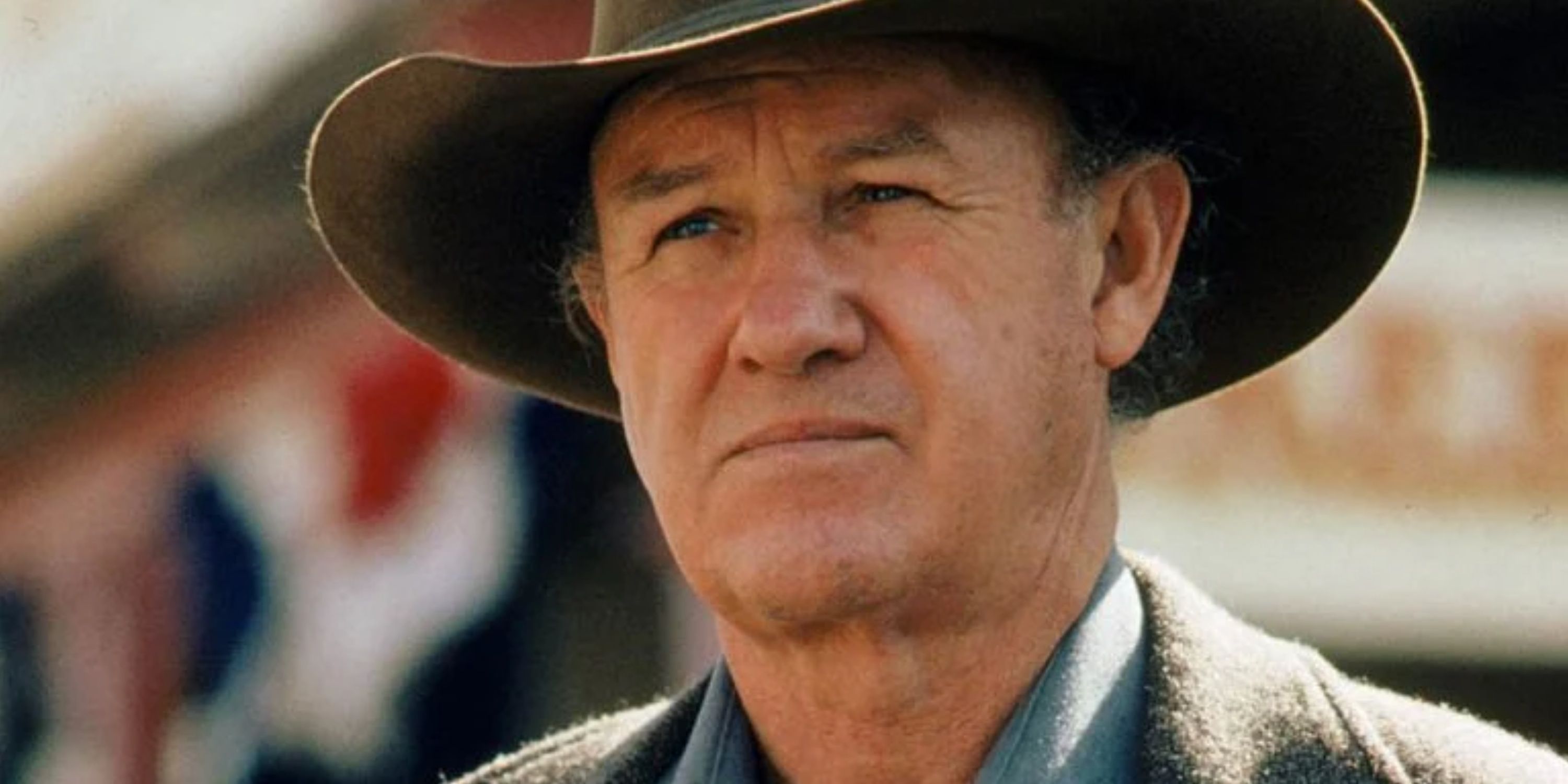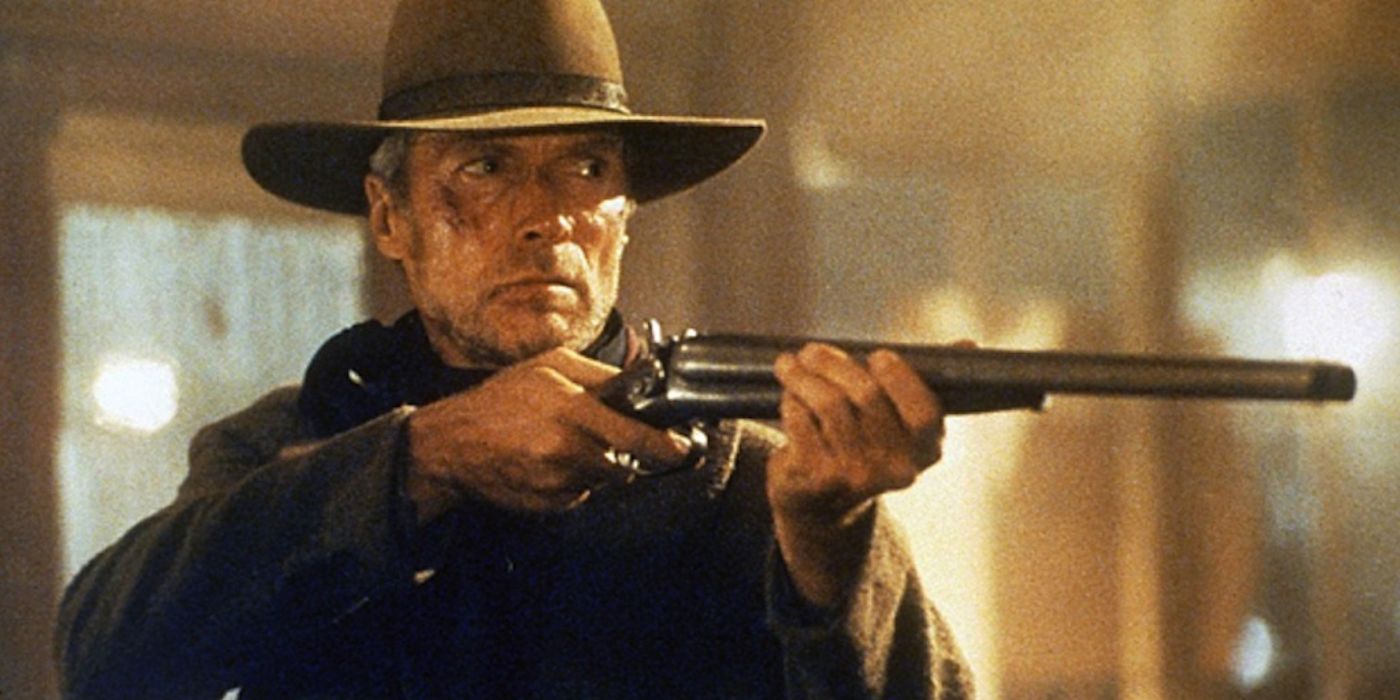Quick Links
Since his starring role in Sergio Leone's Dollars Trilogy, Clint Eastwood has been the face of the Western genre. Taking over from John Wayne as the de facto mascot of the Old West in Hollywood, Eastwood starred in classics like The Good, the Bad and the Ugly, Hang 'Em High, and The Outlaw Josey Wales. Despite the legendary status of his performance as the Man With No Name, his best Western came much later.
In 1964, Clint Eastwood and Sergio Leone's A Fistful of Dollars kicked off the Dollars Trilogy and, by extension, propelled Eastwood to stardom. Throughout the late 1960s, he became the new face of Western movies, landing subsequent roles in what would become some of the genre's greatest films. However, Eastwood's talents weren't confined to his acting prowess, and he quickly became one of the most celebrated directors in the film industry. His dual talent shone through in The Outlaw Josey Wales, which the actor both starred in and directed. However, it wouldn't be until the 1990s that he turned in what many view as his masterpiece. Many critics see this film as one of the most significant Westerns of all time.
Westerns Owe A Lot To Clint Eastwood
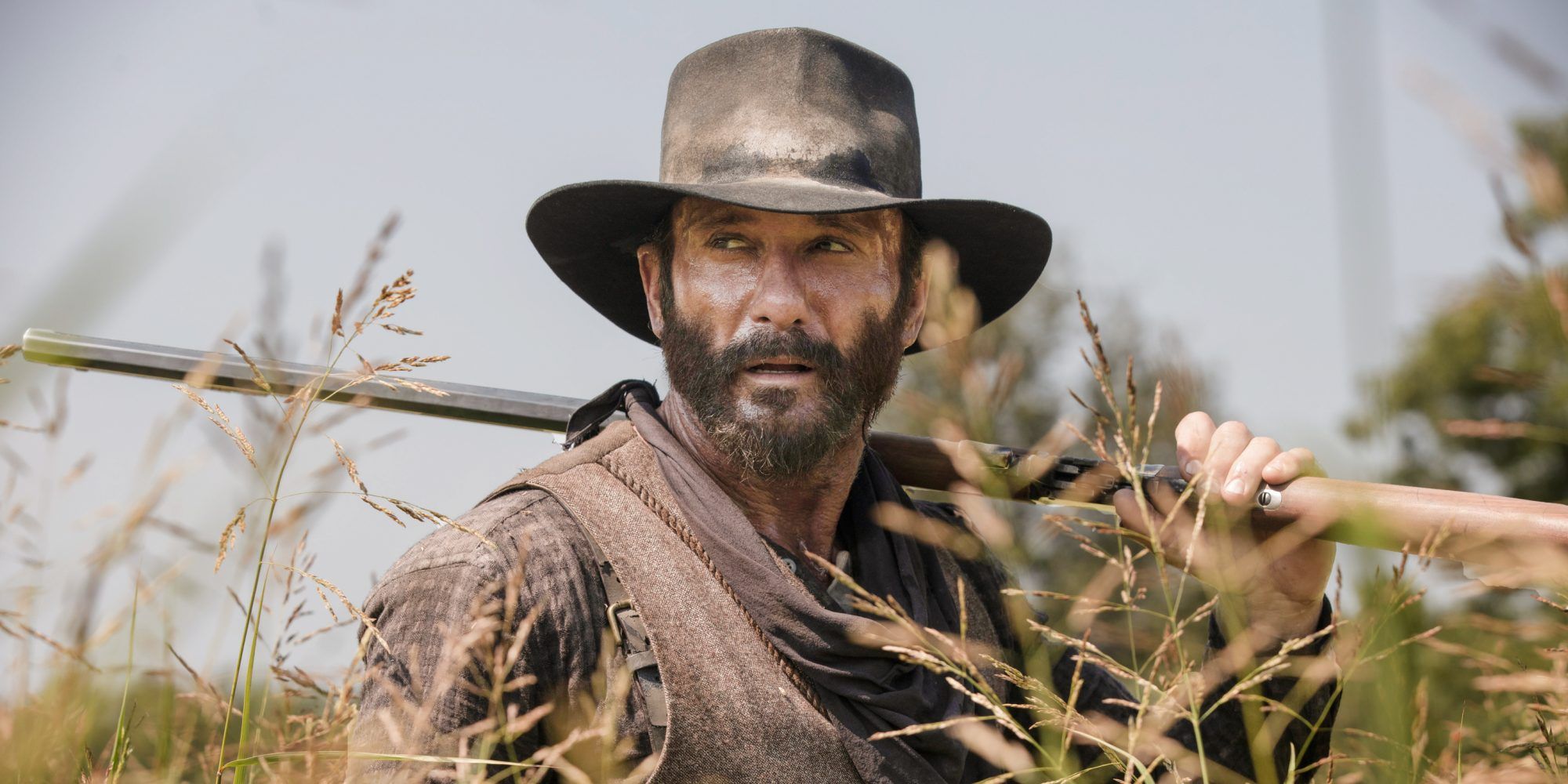
1883 Rips the Veneer Off the American Frontier to Tell a Unique Western
Centering the voices of women and Black cowboys, the Yellowstone prequel series, 1883, tells a poignant story that stands on its own.|
The Best Non-Western Clint Eastwood Movies (Per CBR) |
|
#1 - Dirty Harry |
|
#2 - Every Which Way But Loose |
|
#3 - The Gauntlet |
Following his success in the Dollars Trilogy, Clint Eastwood went on to star in a slew of great Westerns. Hang 'Em High, The Outlaw Josey Wales, High Plains Drifter, and Two Mules For Sister Sara are among his most famous. Even many of Eastwood's modern movies, such as Coogan's Bluff and Dirty Harry, played into many of the themes and tropes of Western films that made the actor so iconic, namely the stoic individualist who has trouble with authority. Throughout the 1960s and '70s, the actor became a standard-bearer for American masculinity. This later primed him for some of Hollywood's most dramatic and subversive roles, which typically challenged the tropes, themes, and expectations of a variety of genres.
Westerns have maintained a loyal fan base because of what they represent: A time when a person could leave their troubles behind and forge a new path on the frontier, free of the constraints of society. It only makes sense that bounty hunters dominate the genre, both as heroes and villains and that lawmen are so often portrayed as veritable one-man army figures. For people who identify with this sense of self-sufficiency and individualism, the genre is practically a home away from home. This was an era where a person could wake up a cattle rancher and become a deputized Marshal charged with hunting a fugitive that same day. For this reason, the era is one thought of as adventurous, with a lasting romantic veneer that places a great emphasis on finding heroes in a lawless, violent land.
Eastwood brought a new sense of rugged individualism to the Old West, surpassing even John Wayne's macho persona on the big screen. The polished, do-right lawman that Wayne had so often represented was replaced with a morally ambiguous archetype that Eastwood perfected throughout his career. His heroes were often guided by their sense of right and wrong, characters who didn't mind when their actions landed them on the wrong side of the law. A great example of this is the film Hang 'Em High, where Eastwood plays a vengeful Marshal, Jed Cooper, pursuing the men who unlawfully lynched him. The film sees him butt heads with the town's judge, a man driven by ambition and preserving a sense of law and order, who is initially reluctant to allow Cooper to deliver justice to his attackers.
How Unforgiven Challenged The Old West Mythos
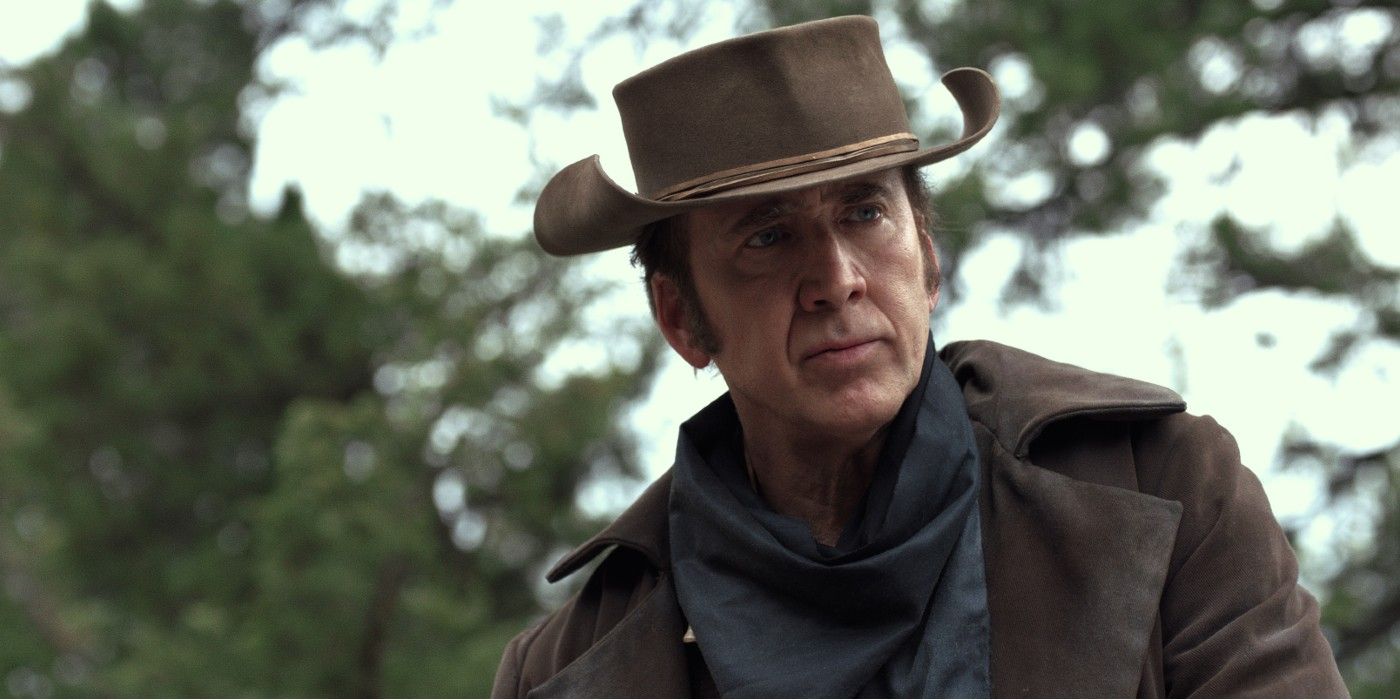
REVIEW: Nicolas Cage Carries the Basic but Satisfying Western The Old Way
Even if nearly everything about Nicolas Cage Western The Old Way is obvious and predictable, the filmmakers deliver the familiar material effectively.|
The Best Final Showdowns In Western Movies (Per CBR) |
|
#1 - The Good, the Bad and the Ugly |
|
#2 - The Wild Bunch |
|
#3 - Once Upon A Time In The West |
In 1992, Clint Eastwood returned to the Western genre after a hiatus, which saw him tackle other genres like action, thriller, and comedy. His movie Unforgiven follows him in the role of William Munny, a retired gunfighter who decides to pursue a bounty placed by a group of victimized prostitutes on two violent cowboys in the town of Big Whiskey. Along with his friend, Ned Logan, and a young bounty hunter, the Schofield Kid, Will pursues the cowboys for the bounty. However, along the way, they encounter the violent sheriff of Big Whiskey, Little Bill Daggett. In a bid to keep a clean, orderly town, Daggett imposes a ban on firearms and inflicts violence upon those seeking to claim the bounty, starting with a legendary gunfighter, English Bob. He even murders Ned Logan and displays his body in public as a warning.
Typically, characters in Westerns fit into recognizable archetypes; a Sheriff may be an upstanding lawman or a corrupt villain, but rarely in the middle; a bounty hunter is a skilled gunfighter, who earns his reputation through shootouts; and the protagonist is generally a good man who wouldn't shoot anyone unless they deserved it. Unforgiven shatters each of these ideas. In Bill Daggett, there is a sheriff who is motivated by peace, law and order but uses brutality to achieve it. In English Bob, audiences are shown the false bravado of a bounty hunter who uses lies and exaggeration to maintain a fearsome reputation. In William Munny, audiences are robbed of a valiant protagonist, instead given a man haunted by the evil deeds of his past who is trying to earn money to look after his family. In this way, the film gives viewers more nuanced and ambiguous characters who represent the motives and troubles of people in the Old West better than most.
Bill Daggett is, without a doubt, the film's most interesting character. Despite the brutality he visits upon English Bob, Daggett is written as a man who is primarily motivated by maintaining law and order in Big Whiskey, rather than the greed or corruption typically associated with Western villains. The sheriff has been around long enough and seen enough in his time to know the perils that come with bounty hunters and vigilantism. However, his fixation with peace and compromise leads to immoral outcomes, as the prostitute attacked by the cowboy is left without justice, with only her owner being compensated, like a rancher being paid for lost cattle. Bill understands the injustice but is too concerned with reaching an amicable settlement to do the right thing. When the bounty is placed on the cowboys' heads, the sheriff is forced into a corner and feels he must make an example of Ned to discourage further vigilantism.
Unforgiven Helped Change The Tone Of Westerns
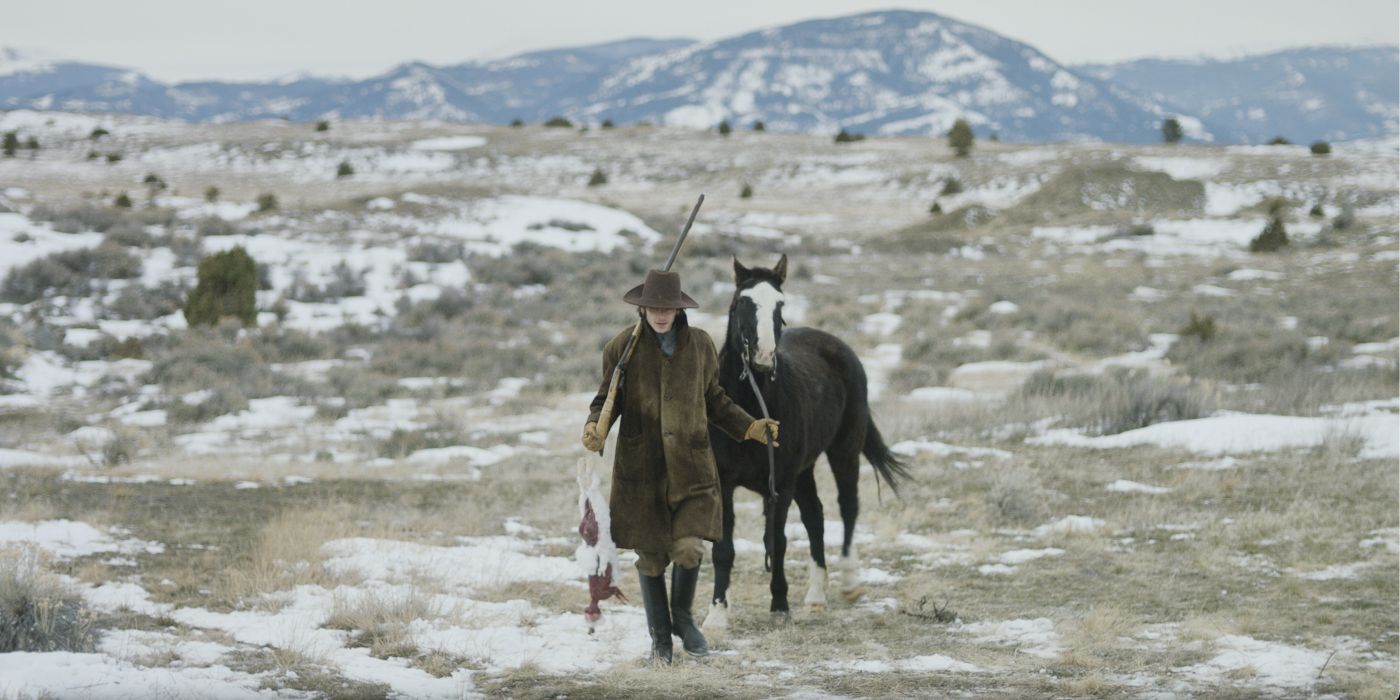
REVIEW: Organ Trail is a Solid Western That Isn't as Scary as Its Title Suggests
Organ Trail is a solid Western with thriller elements, but it can't quite reach the horrific heights it's aiming for. Here's CBR's review.|
The Best Western Movies Of The 2000s (Per CBR) |
|
#1 - No Country For Old Men |
|
#2 - There Will Be Blood |
|
#3 - The Assassination of Jesse James By The Coward Robert Ford |
A recurring theme throughout Unforgiven is the moral relativity and changing nature of good and bad in the Old West. Based on his history, Will Munny would be seen as a villain in any classical Western, and Little Bill would be the hero. Here, however, the stereotypical roles are reversed; Will is a repentant older man, one forced to live with the sins of his past who seeks to provide for his family. Little Bill means well, but his prioritization of order over justice requires him to be on the wrong side of the story. However, considering the number of old Westerns that were critical of vigilantism, such as Eastwood's own Hang 'Em High, it's easy to see how Daggett would be seen in an agreeable light by some of the residents of Big Whiskey. When compared with Munny's past deeds, Little Bill is almost a Boy Scout.
When Unforgiven was made, Westerns, even those seeking a grittier tone, would still often conform to a more black-and-white, good versus evil-story. For example, Young Guns takes some of the West's most notorious outlaws and uses them as stand-ins for the young 'Brat Pack' actors of the era, such as Emilio Estevez, Charlie Sheen, and Kiefer Sutherland. Much of the nuance of the real gunfighters was traded in for an '80s-style tale of youthful rebellion and revenge against a cutthroat rancher -- who murdered their surrogate father. By contrast, Unforgiven is practically devoted to busting the myth that there were "good" or "evil" people in its time, instead opting to show how right and wrong can depend on perspective and loyalties. As Eastwood's Munny himself puts it, "Deserve's got nothing to do with it."
Little Bill Is A Window Into The Real Old West

REVIEW: Surrounded Is a Riveting, Personal Western That's More Than Meets the Eye
Letitia Wright and Jamie Bell deliver phenomenal and emotional performances in Anthony Mandler's poignant western, Surrounded.|
The Best Westerns That Combine Other Genres (Per CBR) |
|
#1 - Brokeback Mountain |
|
#2 - No Country For Old Men |
|
#3 - Logan |
While not an audience surrogate in the classical sense, Bill Daggett does hold an interesting place in Unforgiven's story. Through his discussions with English Bob's biographer, W.W. Beauchamp, Bill explains the misconceptions and undermines the grandeur of the Old West. Whether it's through picking apart Bob's embellished -- or outright false -- accounts of his life or explaining something as simple as the faults in old firearm models, Bill leaves the viewer with a flawed, underwhelming impression of the West. This makes the finale all the more impressive as, contrary to every other character in the story, Will Munny proves that he does live up to his reputation. After almost two hours of Bill tearing down the machismo and legend of Western gunfighters, Munny almost restores it through a revenge-fueled shootout.
The message of Unforgiven is clear: The Old West brought to viewers through classical cinema is romantic fiction, built on false accounts and the eagerness of writers to lionize the era's most prominent figures. Through Eastwood's direction, the film brings this legend down to ground level and seeks to re-introduce it to audiences through a somber and sober lens, though one that does still give the viewer what they want. The film delivers one of the genre's most intense shootouts and a slew of interesting characters but doesn't sacrifice the realism for which it strives. The story serves as a character study, period drama, and Western shooter all in one, and has maintained a great reputation among Western fans of all stripes since it was released. The film is a testament to the talents of Clint Eastwood, both as an actor and director and helped shape an entire generation of Westerns made in its wake.
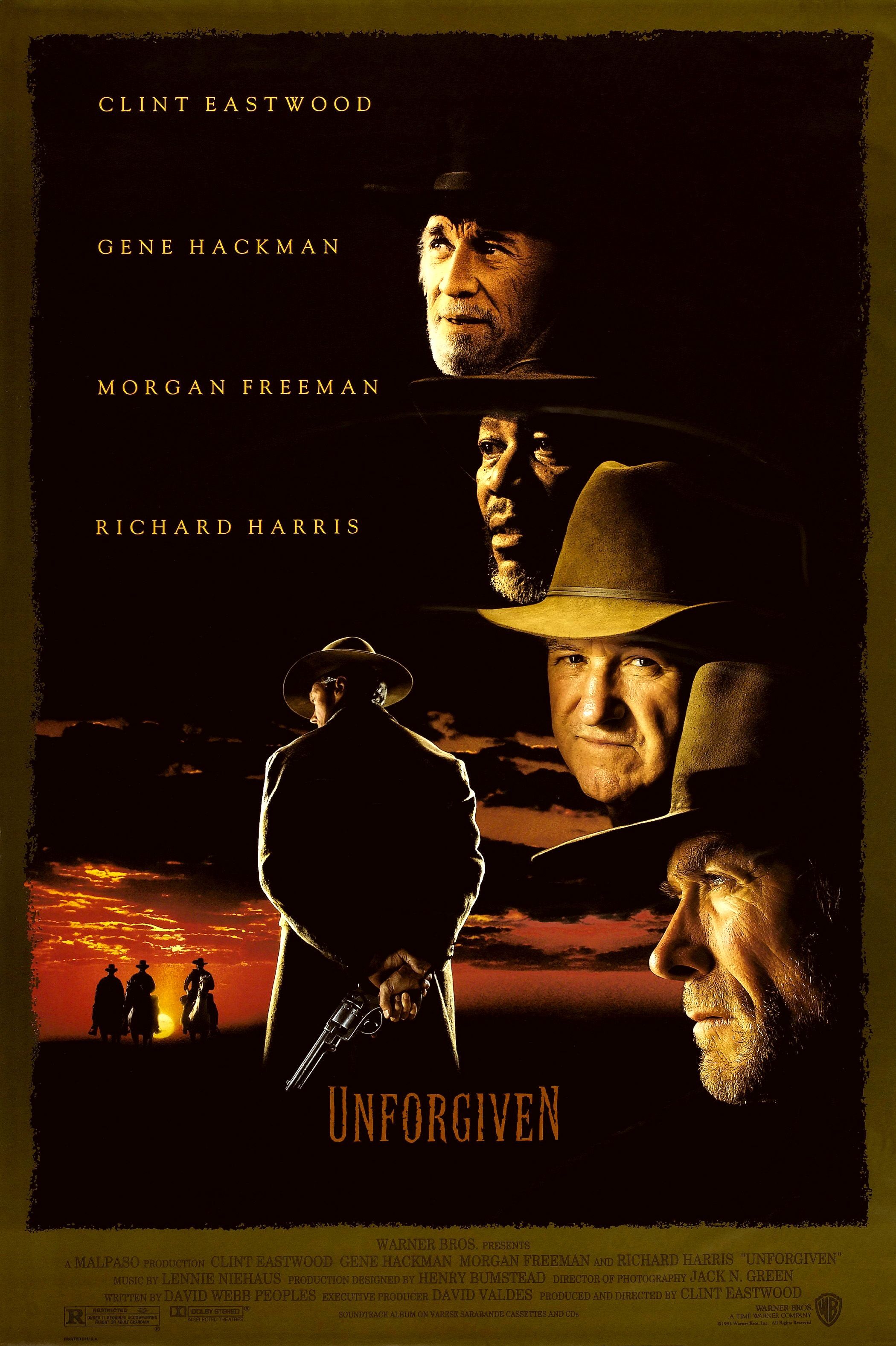
Unforgiven (1992)
Retired Old West gunslinger William Munny reluctantly takes on one last job, with the help of his old partner Ned Logan and a young man, The "Schofield Kid."
- Director
- Clint Eastwood
- Release Date
- August 7, 1992
- Cast
- Clint Eastwood , Gene Hackman , Morgan Freeman , Richard Harris
- Writers
- David Webb Peoples
- Runtime
- 2 hours 10 minutes
- Main Genre
- Western
- Production Company
- Warner Bros., Malpaso Productions


